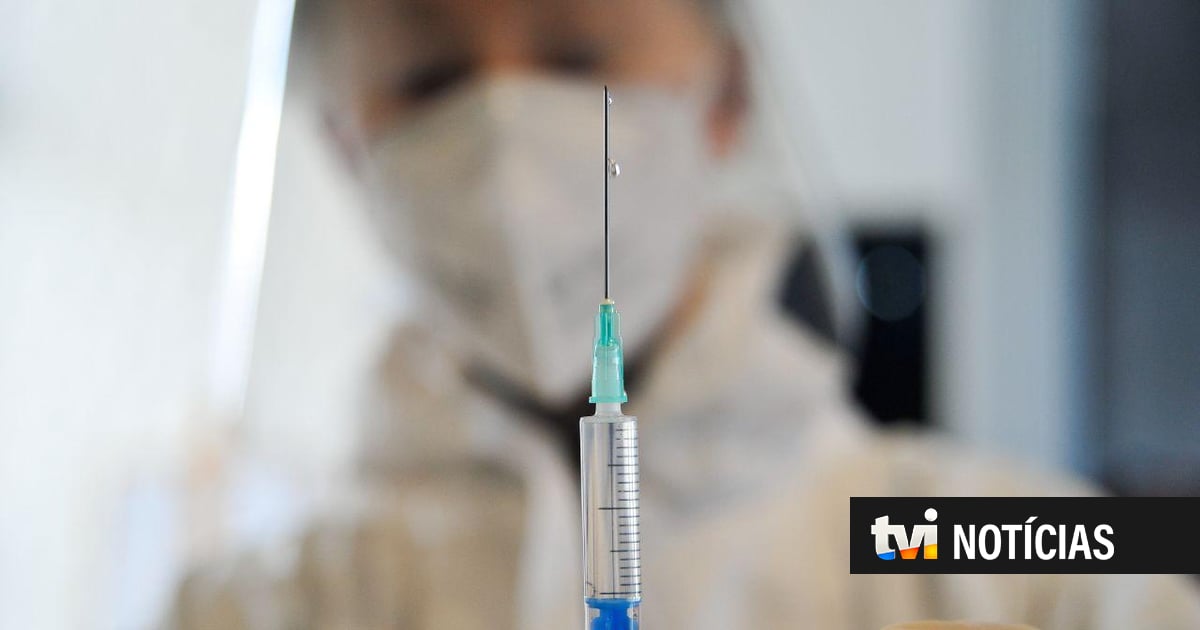Portugal has already administered at least 30 doses of the AstraZeneca vaccine to citizens over 70 years of age, according to a report by the European Center for Disease Control and Prevention (ECDC, in its original acronym), released this Wednesday, which details details about the vaccination in the European Union.
Remember that, according to the norm of the Directorate-General for Health that is in force, this vaccine should preferably be given only to people up to 65 years old. A recommendation that extended to other European countries, since, in the AstraZeneca trial, not enough cases of people over 65 were evaluated to allow conclusions to be drawn about the vaccine’s effectiveness in this age group.
Despite this, the same DGS standard states that “under no circumstances should the vaccination of a person aged 65 or over be delayed” if only this vaccine is available. In other words, if doses of Moderna or Pfizer are missing, the administration of the AstraZeneca vaccine to the elderly would be allowed.
The vaccination specialist at the Institute of Molecular Medicine of the University of Lisbon (IMM), Miguel Prudêncio, admits that this may have been the case in the 30 doses reported by ECDC. However, he says he is not concerned with administering the AstraZeneca vaccine to citizens over 65 years of age.
According to the expert, the emergence of new data, which prove the safety of the product in that age group, point out that regulators and authorities should review the current recommendations soon. Indeed, the European Medicines Agency has already done so.
It is safe to say that the vaccine [da AstraZeneca] is effective at these ages “, says Miguel Prudêncio.
For Miguel Castanho, also a researcher at IMM, this situation may have resulted from some failure in the process, “either because there was bad planning, or because other vaccines were damaged”. Still, the specialist says that it is preferable to vaccinate priority groups with AstraZeneca than not to vaccinate at all.
In addition, Miguel Castanho understands that, even if the AstraZeneca vaccine is recommended for people over 65 years of age, Pfizer and Moderna vaccines should be the first to be applied in this age group, since they provide greater effectiveness.
It is absolutely rational to apply the vaccine that gives more guarantees to older people “, he said.
This Friday, António Costa admitted that, since the AstraZeneca vaccine is not recommended for people over 65, “we will not be able to reach, by the end of March, the goal of sufficient vaccination of people between 65 and 79 years old , with associated comorbidities “.
What others are doing
Portugal was even one of the last countries to issue an official recommendation related to the subject. Before that, Denmark, France or Germany quickly emerged to advise against vaccination in people over 65 years of age.
If there are no data available for countries like France or Germany, in the same ECDC report, in Denmark there are only six cases of vaccination with AstraZeneca, all of them under 80 years old.
In Austria, which also does not recommend this vaccine to people over 65, 143 doses of the AstraZeneca vaccine have already been given, many of them to people over 80, and five of them with a second dose vaccine.
In Belgium, the recommendation was even more demanding, and excludes the AstraZeneca vaccine for citizens over 55. The country seems to be following the plan almost to the letter: only six doses were administered to citizens older than that age, all of whom were given to people under 70 years of age.
In the opposite direction comes Ireland, one of the countries that also advised against it, but that ended up using this vaccine. There were 73 doses administered to people over 70 years of age in the country, 12 of which to citizens over 80 years of age.
In Poland, which also advised against the vaccine for people over 65, there were 20 cases of vaccines administered to people over 70 years old. Of these, 12 were among citizens over 80 years of age.
What is at stake
At stake is the lack of scientific knowledge about the true effect of the vaccine developed by the British pharmaceutical company, since clinical trials have not been carried out with sufficient participants in this age group.
This lack of knowledge has led many countries, as Portugal did, to discourage the vaccine from being given to the elderly. Still, both World Health Organization like European Medicines Agency recommended this vaccine for those over 65 years.
Arrival in Portugal in February, the AstraZeneca vaccine was administered to a person aged 70-79 years old in the first week of the month (fifth week of the year). In the following week the scenario was repeated, and last week (the seventh of the year), there were 21 doses of AstraZeneca vaccine administered in that age group. Also in the last week, seven people aged 80-89 years received a dose of the same vaccine.
It should also be noted that, in the age group of 60-69 years, 12,583 vaccines from this pharmaceutical company have already been administered, with no concrete data on the ages they went to.
Of all these 12,613 vaccines administered to nationals over the age of 60, only one served for a second dose.
A TVI24 tried to contact the task force, which is responsible for coordinating vaccination in Portugal, but did not receive a response. When faced with this situation, Admiral Gouveia e Melo had already admitted the administration of the AstraZeneca vaccine to people over 65.
“If there is a shortage and this vaccine is an alternative, of course it is”, said at the time in an interview on TVI.
After the favorable recommendation of the European Medicines Agency, the task force coordinator attributed the decision to Infarmed and DGS. THE TVI24 also contacted Infarmed and DGS, but has not yet received a response.
Altogether, Portugal received, since the first week of February, 177,600 vaccines from AstraZeneca, having administered 50,212, about 28% of the total received, which is above the European Union average.
A generic perspective
In the global vaccination, it is the Pfizer vaccine, developed in partnership with BioNTech, which has more doses administered in Portugal. This scenario would be expected, not least because it was the first to be approved. In all, 362,846 first dose vaccines were administered, to which another 246,587 second doses were added.
In short, the Pfizer vaccine is responsible for 76% of the total doses of vaccines administered in Portugal. This number increases to 95% when we speak only of the second dose.
Also impressive is the use that has been made of this vaccine. Of the 611,130 doses received, Portugal administered 609,439, a ratio that is very close to 100%, well above that seen in the data for AstraZeneca.
These are expected numbers, since Pfizer’s vaccine arrived in Portugal three weeks before Moderna, and more than five weeks before AstraZeneca.
The vaccine data from Moderna points to a global use of 53%. Of the 42,000 doses received by Portugal, 22,523 have already been administered, about 1,000 of a second dose.
It should be noted that this North American pharmaceutical company early warned of a low initial production capacity, not least because it is a small company, especially when compared to other competitors already approved.
| Pharmaceutical | Age Range | 1.º Dose | 2.ª Dose |
| Pfizer | 18-24 years | 10.344 | 7.785 |
| Pfizer | 25-49 years | 123.497 | 101.356 |
| Pfizer | 50-59 years | 55.981 | 44.241 |
| Pfizer | 60-69 years | 32.688 | 25.429 |
| Pfizer | 70-79 years | 22.841 | 15.225 |
| Pfizer | 80-89 years | 117.316 | 52.470 |
| Modern | 18-24 years | 771 | 110 |
| Modern | 25-49 years | 7.111 | 1.397 |
| Modern | 50-59 years | 1.850 | 120 |
| Modern | 60-69 years | 1.109 | 181 |
| Modern | 70-79 years | 638 | 47 |
| Modern | 80-89 years | 8.936 | 0 |
| AstraZeneca | 18-24 years | 2.361 | 0 |
| AstraZeneca | 25-49 years | 23.583 | 4 |
| AstraZeneca | 50-59 years | 11.652 | 1 |
| AstraZeneca | 60-69 years | 12.583 | 1 |
| AstraZeneca | 70-79 years | 23 | 0 |
| AstraZeneca | 80-89 years | 7 | 0 |
This Saturday two months have passed since it was administered the first dose of vaccine against covid-19 in Portugal. At the time, only Pfizer’s product had been approved by the European Union. After that period, and with the approval of AstraZeneca and Moderna vaccines in between, the country already takes more than 797 thousand doses of vaccine administered, 258 thousand of which are second dose, which means that this is the number of people already immunized against the new coronavirus.
– .


